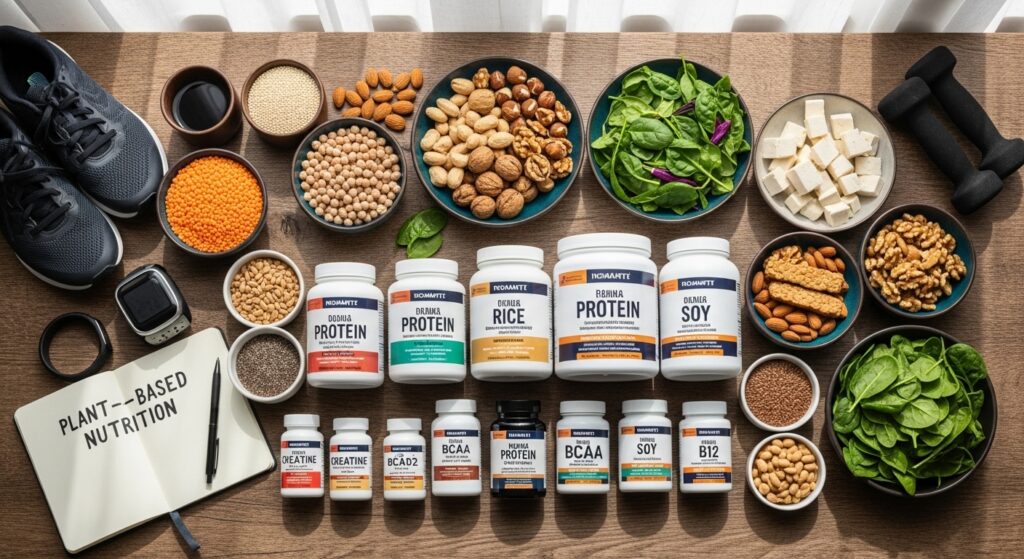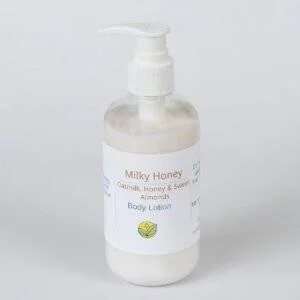
Fitness, wellness, and nutrition are increasingly intersecting as our understanding of holistic wellness becomes more complete. Plant-based strategies are becoming understood as an efficacious method to sustain energy, support recovery, and promote long-term health. Whether you’re an athlete, weekend warrior, or simply someone pursuing a healthier routine, understanding how best prebiotic supplement options and targeted supplements can integrate into daily life is a huge asset. In this article, we analyse the science behind plant proteins and supplements, highlight top vitamin supplement brands, and link to relevant products available through Nature’s Healthbox.
The Role of Protein in an Active, Plant-Centred Diet
Why Protein Matters for Movement and Recovery
Protein is the macronutrient most directly involved in repairing tissues, synthesising enzymes and hormones, and supporting immune function. After exercise, especially strength or resistance training, your body triggers muscle protein synthesis to repair micro-damage. To optimise this process, adequate protein intake spread throughout the day is essential.
From a plant-based perspective, achieving this requires selecting sources that provide a good amino acid profile, digestibility, and complementary pairing (for example, combining legumes, grains, nuts, and seeds). That’s where vegan protein powder UK options can help, offering convenient, concentrated sources to support your daily needs.
How Much Protein Is Enough?
While exact needs vary by body size, training intensity, and goals, a common guideline is:
- 1.2 to 2.0 g protein per kg bodyweight per day (higher end for more intense training)
- Spread over 3–5 servings to stimulate protein synthesis repeatedly
- Aim for 20–30 g protein per serving when possible
Plant proteins (pea, hemp, rice, soy, lentil) have matured in formulation so that many now approach the bioavailability of animal proteins, especially when blended.
Choosing a Vegan Protein Powder in the UK
When selecting a vegan protein powder UK, here are key criteria to evaluate:
- Amino acid completeness or thoughtful blends (e.g. pea + rice)
- Digestibility and low anti-nutrient content
- Clean ingredient list (no excessive fillers, artificial sweeteners or preservatives)
- Third-party testing or quality assurance
- Palatability and solubility
Below are some exemplar products (not necessarily from Nature’s Healthbox, but illustrative of what to look for). Always check whether Nature’s Healthbox stocks these or comparable items before purchase:
- Just Natural Organic Pea Protein Powder – A single-ingredient pea protein with minimal processing and good purity.
- Nuzest Protein Plus Greens + Berries – A blend that pairs protein with antioxidant greens & berries for dual support.
- Kiki Health Organic Pea Protein – Certified organic, micro-filtered pea protein, good for those preferring purity and transparency.
Integrating Protein Powders into Your Routine
- Post-workout shakes: Blend with plant milk + banana + spinach
- Meal replacement: Use in porridge, overnight oats, or high-protein smoothie bowls
- Baking & cooking: Incorporate into pancakes, energy bars, or protein-fortified soups
Remember: whole foods should remain your baseline. Powders supplement—not replace—diverse plant protein sources (beans, lentils, tofu, tempeh, nuts, seeds, grains).
Strategic Supplementation: Beyond Protein
To round out a plant-based active plan, supplements can help fill nutrition gaps. Here’s how to think about top vitamin supplement brands and targeted support:
Categories Worth Considering
- Vitamin B12 – Essential for vegans; often taken as methylcobalamin
- Vitamin D (D3 from lichen) – For bone health and immune support
- Iron / Ferritin – Especially for female athletes
- Omega-3s (ALA / EPA / DHA) – From algae sources
- Minerals & trace elements – Magnesium, zinc, selenium, etc.
- Adaptogens & botanical complexes – To support stress resilience
What Makes a Top Vitamin Supplement Brand?
- Transparent labelling and dosage clarity
- Third-party verification (e.g., NSF, Informed-Sport)
- Bioavailable and well-absorbed forms (e.g. chelated minerals, methylated B vitamins)
- Clean formulations, avoiding allergenic excipients
- Ethical sourcing and sustainability
Brands that tend to appear in discerning wellness retailers (like Nature’s Healthbox) include Viridian, Terranova, Solgar, BetterYou, and Garden of Life. These brands often emphasise purity, formulation philosophy, and independent testing.
Example Supplement Strategy
- A reliable plant-based multivitamin or greens & superfoods blend
- B12 1000 µg weekly or 250–500 µg daily
- D3 2000–4000 IU (especially in UK winter months)
- Iron bisglycinate 15–25 mg if ferritin is low
- Algal omega-3s providing 200–300 mg EPA/DHA per day
As always, individual needs vary. Please consult a qualified nutritionist or medical professional for personalised protocols.
How Protein and Supplements Support an Active Plant-Based Life
| Focus Area | Benefit of Protein / Supplement Support |
| Muscle recovery & growth | Protein provision aids repair; BCAAs & leucine triggers synthesis |
| Immune & endocrine health | Vitamins, minerals, and omega-3s support hormone balance and immune strength |
| Energy metabolism | B vitamins and iron are crucial for mitochondrial and red blood cell function |
| Bone & connective tissue health | Vitamin D, magnesium, and trace minerals support bone matrix and collagen synthesis |
| Cognitive & mood resilience | Omega-3s, B vitamins, and adaptogens help maintain mental performance under load |
By combining foundational nutrition (whole foods, plant proteins) with targeted supplementation, you can sustain higher training loads, support recovery, and maintain long-term resilience.




